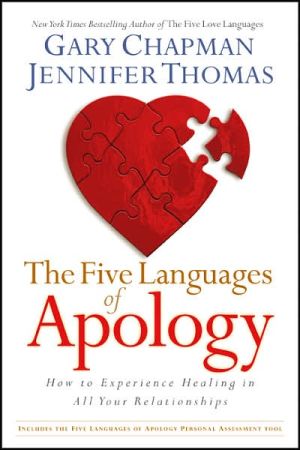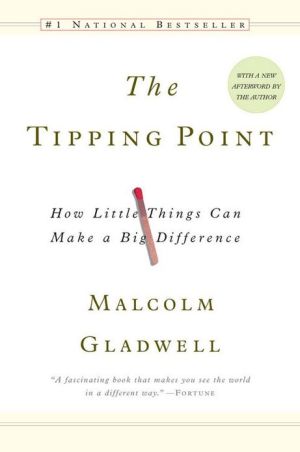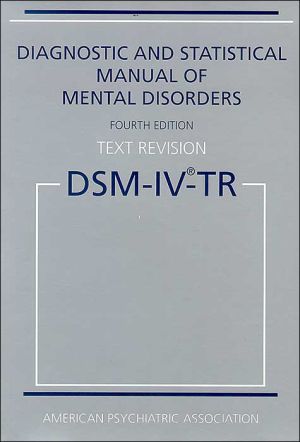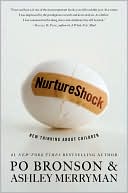Five Languages of Apology: How to Experience Healing in All Your Relationships
Relationships are fragile. And whether fractured by a major incident or a minor irritation, the ensuing emotions can often feel insurmountable preventing the relationship from moving forward or the offended from moving on. In order to make things right, something more than "sorry" is needed. #1 New York Times bestselling author Gary Chapman and Jennifer Thomas have teamed up to deliver this groundbreaking study of how we give and receive apologies. It's not just a matter of will, but it's a...
Search in google:
You will learn how to recognize your own primary apology language while speaking the languages of those you love. Understanding and applying the five languages of an apology will greatly enhance all of your relationships. Publishers Weekly Chapman, author of the bestselling The Five Love Languages, teams up with psychologist Thomas for thoughtful dissection of another tricky subject. Chapman and Thomas choose to tackle the apology because, as with love, understanding it is essential for developing, maintaining and repairing relationships. Apology, however, covers a much broader scope, applying to all varieties of relationships, from the deeply personal connection between intimate partners to the formal relationships between nations. Chapman and Thomas's basic observation that we don't all agree on what constitutes a sincere apology is perhaps not surprising, but it may, as they show, help couples who can't resolve arguments because their apologies aren't accepted. The authors stress that you need to learn the "language" of the person you are apologizing to: for one person, it may be expressing regret, while for another it's accepting responsibility or making restitution. Especially useful is the chapter that helps readers learn which language of apology feels most sincere to them. Chapman and Thomas are most apt when they seek to repair relationships not with large ideas but with simple basics that are too often taken for granted. (Sept.) Copyright 2006 Reed Business Information.
The Five Languages of Apology\ How to Experience Healing in All Your Relationships \ \ By Gary Chapman Jennifer Thomas \ Northfield Publishing\ Copyright © 2006 Gary Chapman Jennifer Thomas\ All right reserved.\ ISBN: 1-881273-57-1 \ \ \ Chapter One\ Why apologize? \ In a perfect world, there would be no need for apologies. But because the world is imperfect, we cannot survive without them. My academic background is the field of anthropology, the study of human culture. One of the clear conclusions of the anthropologist is that all people have a sense of morality: Some things are right, and some things are wrong. People are incurably moral. In psychology, it is often called the conscience. In theology, it may be referred to as the "sense of ought" or the imprint of the divine.\ It is true that the standard by which the conscience condemns or affirms is influenced by the culture. For example, in Eskimo (or Inuit) culture, if one is on a trek and runs out of food, it is perfectly permissible to enter the igloo of a stranger and eat whatever is available. In most other Western cultures, to enter an unoccupied house would be considered "breaking and entering," an offense punishable as a crime. Although the standard of right will differ from culture to culture and sometimes within cultures, all people have a sense of right and wrong.\ When one's sense of right is violated,that person will experience anger. He or she will feel wronged and resentful at the person who has violated their trust. The wrongful act stands as a barrier between the two people, and the relationship is fractured. They cannot, even if they desired, live as though the wrong had not been committed. Something inside the offended calls for justice. It is these human realities that serve as the basis of all judicial systems.\ A Cry for Reconciliation\ While justice may bring some sense of satisfaction to the offended person, justice does not typically restore relationships. If an employee who is found stealing from the company is caught, tried, and fined or imprisoned, everyone says, "Justice has been served." But the company is not likely to restore the employee to the original place of leadership. On the other hand, if an employee steals from the company but quickly takes responsibility for the error, reports that misdeed to the supervisor, expresses sincere regret, offers to pay for all inequities, and pleads for mercy, there is the possibility that the employee will be allowed to continue with the company.\ Humankind has an amazing capacity to forgive. I remember a number of years ago visiting the town of Coventry, England. I stood in the shell of a cathedral that had been bombed by the Nazis in the Second World War. I listened as the guide told the story of the new cathedral that rose beside the ruins. Some years after the war, a group of Germans had come and helped build the new cathedral as an act of contrition for the damages their fellow countrymen had inflicted. Everyone had agreed to allow the ruins to remain in the shadow of the new cathedral. Both structures were symbolic: the one of inhumanity between humans, the other of the power of forgiveness and reconciliation.\ Something within us cries out for reconciliation when wrongdoing has fractured a relationship. The desire for reconciliation is often more potent than the desire for justice. The more intimate the relationship, the deeper the desire for reconciliation. When a husband treats his wife unfairly, in her hurt and anger she is pulled between a longing for justice and a desire for mercy. On the one hand, she wants him to pay for his wrongdoing; on the other hand, she wishes for reconciliation. It is his sincere apology that makes genuine reconciliation possible. If there is no apology, then her sense of morality pushes her to demand justice. Many times through the years I have observed divorce proceedings and watched the judge seek to determine what was just. I have often wondered if sincere apologies would have changed the sad outcome.\ For Lack of an Apology ...\ I have looked into the eyes of teenage rage and wondered how different life would be if an abusive lather had apologized. Teenage violence toward parents can be traced to two sources. First, the teenager feels wronged by the parents and has never been reconciled. Second, the teenager feels unloved by the parents. In an earlier book, I dealt with the topic "How to love teenagers effectively." In this book, we will deal with "How to apologize to teenagers effectively."\ The need for apologies permeates all human relationships. Marriage, parenting, dating, and vocational relationships all require apologies. Without apologies, anger builds and pushes us to demand justice. When, as we see it, justice is not forthcoming, we often take matters into our own hands and seek revenge on those who have wronged us. Anger escalates and can end in violence. The man who walks into the office of his former employer and shoots his supervisor and three of his coworkers is typically not mentally unbalanced. That is evidenced by the fact that his neighbors are often shocked that he would do such a thing. He "seemed so normal."\ He is, rather, a man who burns with a sense of injustice-to the point where only murderous revenge will right the wrong. Things might have been different had he had the courage to lovingly confront -and others had the courage to apologize.\ In marriages, domestic turmoil is often rooted in an unwillingness to apologize. The wife says, "He treats me like dirt and then wants to jump in bed with me. How could he do that?" while the husband responds, "She treats me like a child and wants to control my life. I didn't marry her to get a second mother." Both are hurt; both are angry; and both have failed, but neither is willing to apologize. For lack of an apology, they declare war, which sometimes lasts for years and often ends in divorce or death. Partners in healthy marriages are willing to apologize.\ Can You Forgive without an Apology?\ Genuine forgiveness and reconciliation are two-person transactions that are enabled by apologies. Some, particularly within the Christian worldview, have taught forgiveness without an apology. They often quote the words of Jesus, "If you do not forgive men their trespasses, neither will your Father forgive your trespasses." Thus, they say to the wife whose husband has been unfaithful and continues in his adulterous affair, "You must forgive him, or God will not forgive you." Such an interpretation of Jesus' teachings fails to reckon with the rest of the scriptural teachings on forgiveness. The Christian is instructed to forgive others in the same manner that God forgives us. How does God forgive us? The Scriptures say that if we confess our sins, God will forgive our sins. Nothing in the Old or New Testaments indicates that God forgives the sins of people who do not confess and repent of their sins.\ When a pastor encourages a wife to forgive her erring husband while he still continues in his wrongdoing, the minister is requiring of the wife something that God Himself does not do. Jesus' teaching is that we are to be always willing to forgive, as God is always willing to forgive, those who repent. Some will object to this idea, indicating that Jesus forgave those who were killing Him. But that is not what the Scriptures say. Rather, Jesus prayed, "Father, forgive them, for they do not know what they are doing." Jesus expressed His heart of compassion and His desire to see His murderers forgiven. That should be our desire and our prayer. But their forgiveness came later when they acknowledged that they had indeed killed the Son of God.\ Forgiveness without an apology is often encouraged for the benefit of the forgiver rather than the benefit of the offender. Such forgiveness does not lead to reconciliation. When there is no apology, the Christian is encouraged to release the person to God for justice and to release one's anger to God through forbearance. Dietrich Bonhoeffer, the great theologian who was martyred by the Nazis in a concentration camp in 1945, argued against the "preaching of forgiveness without requiring repentance." He referred to such forgiveness as "cheap grace ... which amounts to the justification of sin without the justification of the repentant sinner."\ Genuine forgiveness removes the barrier that was created by the offense and opens the door to restoring trust over time. If the relationship was warm and intimate before the offense, it can become loving again. If the relationship was simply one of casual acquaintance, it may grow to a deeper level through the dynamic process of forgiveness. If the offense was created by an unknown person such as a rapist or a murderer, there was no relationship to be restored. If they have apologized and you have forgiven, each of you is free to go on living your lives, although the criminal will still face the judicial system created by the culture to deal with deviant behavior.\ The Five-Gallon Container\ When we apologize, we accept responsibility for our behavior, seeking to make amends with the person who was offended. Genuine apology opens the door to the possibility of forgiveness and reconciliation. Then we can continue to build the relationship. Without apology, the offense sits as a barrier, and the quality of the relationship is diminished. Good relationships are always marked by a willingness to apologize, forgive, and reconcile. The reason many relationships are cold and distant is because we have failed to apologize.\ Sincere apologies also assuage a guilty conscience. Picture your conscience as a five-gallon container strapped to your back. Whenever you wrong another, it's like pouring a gallon of liquid into your conscience. Three or four wrongs and your conscience is getting full -and you are getting heavy. A fell conscience leaves one with a sense of guilt and shame. The only way to effectively empty the conscience is to apologize to God and the person you offended. When this is done, you can look God in the face, you can look yourself in the mirror, and you can look the other person in their eyes; not because you are perfect but because you have been willing to take responsibility for your failure.\ We may or may not have learned the art of apologizing when we were children. In healthy families, parents teach their children to apologize. However, many children grow up in dysfunctional families where hurt, anger, and bitterness are a way of life and no one ever apologizes.\ Can We Learn to Apologize?\ The good news is that the art of apology can be learned. What we have discovered in our research is that there are five fundamental aspects of an apology. We call them the five languages of apology. Each of them is important. But for a particular individual, one or two of the languages may communicate more effectively than the others. The key to good relationships is learning the apology language of the other person and being willing to speak it. When you speak their primary language, you make it easier for them to genuinely forgive you. When you fail to speak their language, it makes forgiveness more difficult because they are not sure if you are genuinely apologizing.\ Understanding and applying the five languages of an apology will greatly enhance all of your relationships.\ In the next five chapters, we will explain the five languages. And in chapter 7, we will show you how to discover both your own and another person's primary apology language and how this can make your efforts at apologizing most productive. The balance of the book will look at the challenges in apologizing, forgiving, and then using the languages of apology in all of your relationships.\ Love Story, a popular movie of the 1970s, included the famous line, "Love means never having to say you're sorry." No; it's just the opposite. Love often means saying you're sorry, and real love will include apologies by the offender and forgiveness by the offended. This is the path to restored, loving relationships. It all begins by learning to speak the right language of apology when you offend someone.\ Chapter Two\ Apology Language #1 Expressing Regret \ On the evening of April 6, 2005, I was watching two television programs concurrently. On one channel Larry King was interviewing Jane Fonda on her book My Life So Far (Random House). On the other network Alan Colmes was interviewing Oliver North, who was talking about the "acts of treason" that he alleged Jane Fonda had perpetrated during the Vietnam War.\ Alan said, "But she apologized," to which Oliver North replied, "No, she did not apologize."\ "She said that she was sorry," Alan responded.\ "That's not an apology," said North, adding, "She didn't say 'Will you forgive me?' 'I'm sorry' is not an apology."\ In addition to their political differences, Oliver North and Alan Colmes clearly do not agree on what constitutes an apology. The message of this book is that people often speak different languages of apology.\ What most people are looking for in an apology is sincerity. They want the apology to be genuine, but how do you determine sincerity? Therein lies the problem. The evidence of sincerity differs from person to person. What one person considers to be sincere is not what another person considers to be sincere.\ Our research has led us to the conclusion that there are five basic elements of an apology. We call them the five languages of an apology. For most people, one or two of these speak more deeply of sincerity than the others. You do not need to include all five languages to offer an effective apology. For an apology to be accepted, you need to speak the language (or perhaps two languages) that conveys to the offended your sincerity. Then he or she will regard your apology as genuine and will likely accept it.\ The first language of apology is expressing regret. Most commonly, it is expressed in the words "I am sorry." Expressing regret is the emotional aspect of an apology. It is expressing to the offended person your own sense of guilt, shame, and pain that your behavior has hurt him deeply. It is interesting that when Robert Fulghum wrote his book All I Really Need to Know I Learned in Kindergarten, he included as one of the things he learned: "Say you're sorry when you hurt somebody." Expressing regret is fundamental to good relationships.\ Apology is birthed in the womb of regret. We regret the pain we have caused, the disappointment, the inconvenience, the betrayal of trust. Regret focuses on what you did or failed to do and how it affected the other person. The offended one is experiencing painful emotions, and they want you to feel some of their pain. They want some evidence that you realize how deeply you have hurt them. For some people, this is the one thing they listen for in an apology. Without the expression of regret, they do not sense that the apology is adequate or sincere.\ Saying the Magic Words\ A simple "I'm sorry" can go a long way toward restoring goodwill. The absence of the words "I'm sorry" stands out to some like a very sore thumb. Quite often offenders will not realize that they have left out some "magic words," but you can be assured that the listener is scanning the silence for those missing words.\ Let me (Jennifer) share a personal story. Last spring I was part of a group of women who received end-of-the-year prizes for each having led a small group. I selected my prize from a sales consultant's catalog and was eagerly awaiting the arrival of my thank-you gift. The summer came and went with no delivery of my product. I began to wonder, Where is my order? When the end of the year came with no package, I concluded that my order was not likely to come. I actually decided at that time that it was not worth pursuing the issue with anyone. I reasoned that I had enjoyed leading the group and put the item out of my mind with the refrain, "Easy come, easy go."\ (Continues...)\ \ \ \ \ Excerpted from The Five Languages of Apology by Gary Chapman Jennifer Thomas Copyright © 2006 by Gary Chapman Jennifer Thomas . Excerpted by permission.\ All rights reserved. No part of this excerpt may be reproduced or reprinted without permission in writing from the publisher.\ Excerpts are provided by Dial-A-Book Inc. solely for the personal use of visitors to this web site. \ \
Acknowledgments / 9\ Introduction / 11\ 1. Why Apologize? / 17\ 2. Apology Language #1: Expressing Regret / 25\ "I am sorry."\ \ 3. Apology Language #2: Accepting Responsibility / 37\ "I was wrong."\ \ 4. Apology Language #3: Making Restitution / 53\ "What can I do to make it right?"\ 5. Apology Language #4: Genuinely Repenting / 69\ "I'll try not to do that again."\ 6. Apology Language #5: Requesting Forgiveness / 91\ "Will you please forgive me?"\ 7. Discovering Your Primary Apology Language / 105\ 8. Apologizing Is a Choice / 119\ 9. Learning to Forgive / 137\ 10. Learning to Apologize in the Family / 153\ 11. Teaching Your Child to Apologize / 173\ 12. Apologizing in Dating Relationships / 193\ 13. Apologizing in the Workplace / 205\ 14. Apologizing to Yourself / 219\ 15. What If We All Learned to Apologize Effectively? / 231\ Notes / 235\ Group Study Guide / 239\ The Apology Language Profile / 269
\ Publishers WeeklyChapman, author of the bestselling The Five Love Languages, teams up with psychologist Thomas for thoughtful dissection of another tricky subject. Chapman and Thomas choose to tackle the apology because, as with love, understanding it is essential for developing, maintaining and repairing relationships. Apology, however, covers a much broader scope, applying to all varieties of relationships, from the deeply personal connection between intimate partners to the formal relationships between nations. Chapman and Thomas's basic observation that we don't all agree on what constitutes a sincere apology is perhaps not surprising, but it may, as they show, help couples who can't resolve arguments because their apologies aren't accepted. The authors stress that you need to learn the "language" of the person you are apologizing to: for one person, it may be expressing regret, while for another it's accepting responsibility or making restitution. Especially useful is the chapter that helps readers learn which language of apology feels most sincere to them. Chapman and Thomas are most apt when they seek to repair relationships not with large ideas but with simple basics that are too often taken for granted. (Sept.) Copyright 2006 Reed Business Information.\ \








